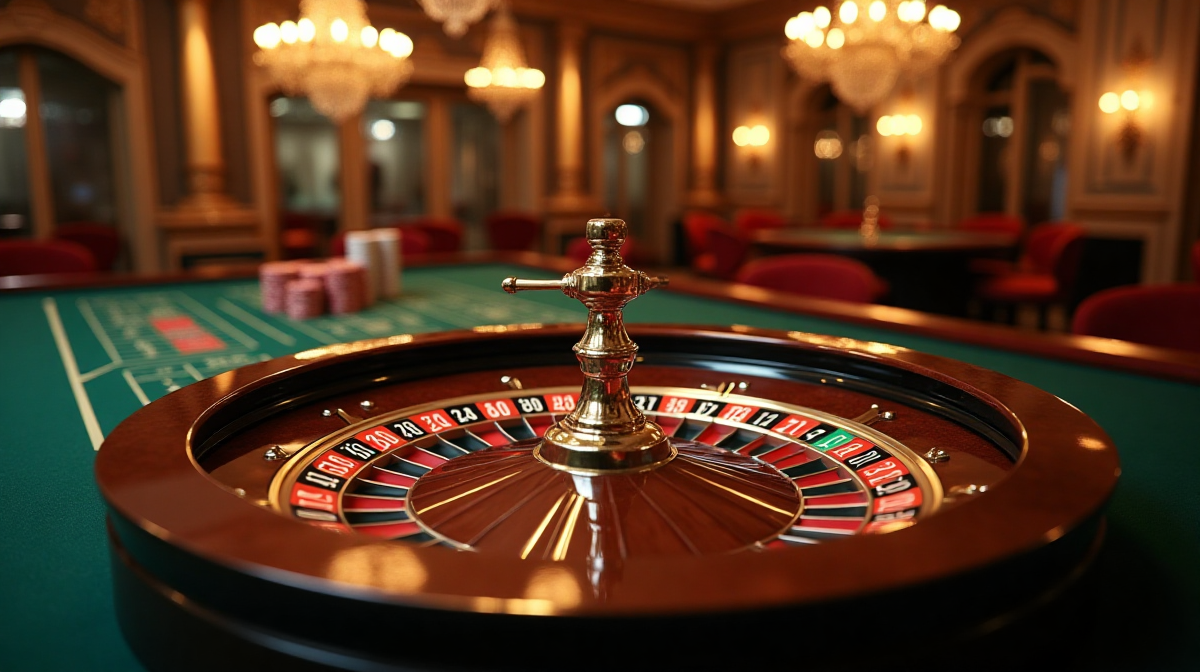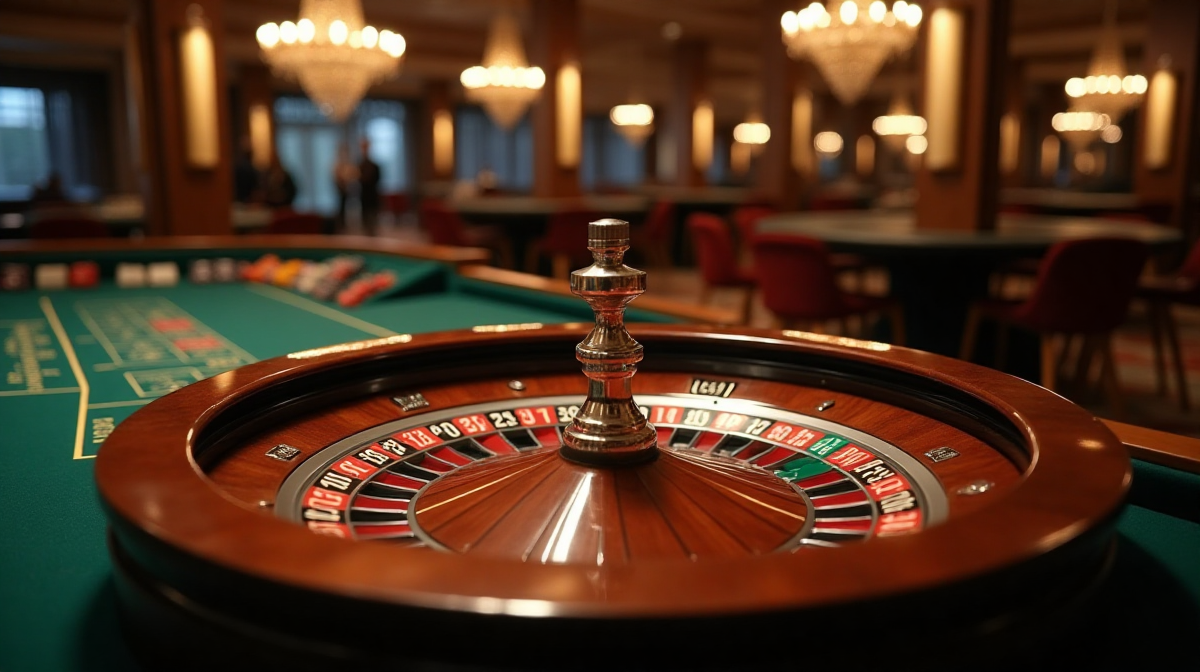Roulette Game Secrets: BetPro's Edge Revealed
The roulette wheel, a symbol of glamour and chance, has captivated players for centuries. But beneath the surface of spinning colors and lucky numbers lies a complex game of probability, strategy, and risk. This article delves into the world of roulette, exploring the intricacies of the game and how players can leverage knowledge and tools – including platforms like betpro – to enhance their experience and understand the true edge.
The Allure and Mystery of Roulette
Roulette’s appeal is undeniable. The simple act of placing a bet and watching the wheel spin creates a thrilling suspense. This allure is often intertwined with myths of predictable patterns and foolproof systems, leading many to believe they can consistently beat the house. However, separating fact from fiction is crucial for anyone hoping to approach roulette with a realistic and informed mindset.
Separating Fact from Fiction: Common Roulette Myths
Many myths surround roulette, from hot and cold numbers to the belief that the wheel has a memory. These are all fallacies. Each spin is independent, meaning past results have no influence on future outcomes. Understanding this randomness is the first step toward responsible play. Even sophisticated tools like betpro can’t change the inherent randomness, but they can help analyze past data for informational purposes.
What is The Edge and Why Does it Matter?
“The Edge” refers to the statistical advantage one party has over another. In roulette, the casino inherently possesses an edge due to the presence of the zero (and double zero in American roulette). Understanding this edge is critical because it dictates the long-term profitability for the casino and the potential for losses for the player.
Anatomy of a Roulette Wheel
The roulette wheel comes in two primary variations: European and American. The key difference lies in the number of pockets. The European wheel features 37 pockets (numbers 1-36 and a single zero), while the American wheel has 38 pockets (numbers 1-36, a single zero, and a double zero). This extra pocket in the American wheel increases the house edge, making the European version more favorable to players.
Payout Structures: Decoding the Numbers
Roulette bets offer varying payouts based on their probability. Inside bets (e.g., betting on a single number) have lower probabilities but higher payouts. Outside bets (e.g., betting on red/black) have higher probabilities but lower payouts. Understanding these payout structures is essential for calculating expected value and making informed betting decisions.
House Edge Explained: Why the Casino Always Wins
The house edge is the percentage of each bet the casino expects to retain over the long run. In European roulette, the house edge is approximately 2.7%, while in American roulette, it’s around 5.26%. This means that, on average, the casino will win 2.7% or 5.26% of all bets placed. While short-term wins are possible, the house edge ensures the casino’s profitability over time. Platforms like betpro exchange offer insights into these odds and provide a space for informed discussion among players.
Probability and Statistics in Roulette – A Basic Overview
Roulette is fundamentally a game of probability. Each number on the wheel has an equal chance of being selected. Statistical analysis can help players understand the likelihood of different outcomes and assess the risk associated with various betting strategies.
Inside Bets vs. Outside Bets: Risk & Reward
Inside bets focus on specific numbers or small groups of numbers, offering higher payouts but lower probabilities. Outside bets cover larger groups of numbers, providing lower payouts but higher probabilities. Choosing between these bet types depends on your risk tolerance and desired level of potential reward.
Systematic Betting Systems:
Martingale System – Pros & Cons
The Martingale system involves doubling your bet after each loss, aiming to recover previous losses with a single win. While seemingly effective, it requires a substantial bankroll and can lead to rapid losses if you encounter a long losing streak.
Reverse Martingale System – A Less Risky Approach?
The Paroli system involves doubling your bet after each win, capitalizing on winning streaks. It’s less risky than the Martingale but still relies on favorable outcomes.
D’Alembert System – The Conservative Strategy
The D’Alembert system involves increasing your bet by one unit after a loss and decreasing it by one unit after a win. It’s a more conservative approach but offers slower progression.
Fibonacci Sequence Betting – Does it Really Work?
This system uses the Fibonacci sequence (1, 1, 2, 3, 5, 8…) to determine bet sizes. It aims to minimize losses during losing streaks, but it's not guaranteed to be profitable.
Flat Betting – The Consistent Approach
Flat betting involves wagering the same amount on each spin, regardless of previous outcomes. It’s a simple and conservative approach that helps manage risk.
Bet Selection based on Wheel Bias
Theoretically, a biased wheel, with certain numbers appearing more frequently, could offer an advantage. However, modern roulette wheels are rigorously tested to ensure fairness, making significant bias rare. Identifying such bias (if legal) would require extensive data collection and analysis.
Bankroll Management: Protecting Your Funds
Setting Limits: Stop-Loss & Profit Targets
Effective bankroll management is crucial. Set a stop-loss limit – the maximum amount you're willing to lose – and a profit target – the amount you aim to win.
Unit Sizing: Matching Bets to Your Bankroll
Determine a unit size (the standard bet amount) based on your bankroll. This helps prevent overbetting and minimizes the risk of depleting your funds.
Identifying Biased Wheels - A Deep Dive
While rare, biased wheels can exist. Identifying them requires meticulous tracking of results over a significant number of spins.
Visual Inspection & Tracking Results
Careful observation of the wheel for physical imperfections and detailed recording of spin outcomes are crucial.
The Legal & Ethical Considerations of Wheel Bias Exploitation
Exploiting a biased wheel may be illegal in some jurisdictions. Always be aware of and comply with local regulations.
Key Number Analysis & Statistical Tracking
Tracking frequently appearing numbers and analyzing betting patterns can provide valuable insights, although it doesn’t guarantee future results. Platforms like betpro can assist with this data analysis.

Live Dealer Roulette vs. Online Roulette – Strategic Differences
Live dealer roulette offers a more immersive experience and may provide subtle behavioral cues from the dealer. Online roulette often features faster gameplay and automated spin results. The strategic approach remains similar, but the environment differs.
The Importance of Emotional Control
Roulette can be emotionally charged. Avoid making impulsive decisions based on wins or losses. Stay calm and rational, adhering to your predetermined strategy.

Avoiding Gambler's Fallacy
The gambler's fallacy is the belief that past events influence future independent events. Remember that each roulette spin is independent, and past results have no bearing on future outcomes.
Understanding Variance and Short-Term vs. Long-Term Results
Variance refers to the fluctuations in results. Short-term results can be unpredictable, but over the long term, the house edge will likely prevail.
Responsible Gambling Resources and Support
If you or someone you know is struggling with gambling addiction, seek help from responsible gambling resources.
Roulette Simulators: Practicing Strategies Risk-Free
Roulette simulators allow you to test different betting strategies without risking real money. This is an excellent way to refine your approach and understand the potential outcomes.
Betting Pattern Trackers – Are they Useful?
Betting pattern trackers can help you analyze your betting history and identify potential areas for improvement. However, they cannot predict future outcomes.
Avoiding Roulette Robot Scams – Red Flags
Be wary of roulette robots and automated betting systems that promise guaranteed profits. These are often scams. Roulette software promising unrealistic returns should be approached with extreme caution.
Recap of Key Takeaways
Roulette is a game of chance with a built-in house edge. Understanding the odds, managing your bankroll, and controlling your emotions are crucial for responsible play. Tools like betpro can provide valuable insights, but they cannot eliminate the element of chance.
The Futurity of Roulette & Potential Innovations
The future of roulette may involve further advancements in technology, such as virtual reality and augmented reality experiences. However, the core principles of the game will likely remain unchanged.
Final Thoughts – Can You Truly Beat the Wheel?
While consistently beating the wheel is unlikely due to the house edge, informed strategy, disciplined bankroll management, and responsible gambling practices can enhance your enjoyment and potentially mitigate losses. Exploring resources like betpro exchange can provide a community and informational resources, but remember that roulette is ultimately a game of chance.

